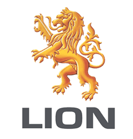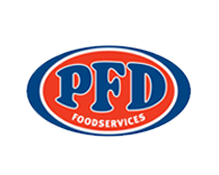Brute force
Brute force:Brute force is a term used in computer science to describe a method of solving a problem that involves trying every possible solution until the correct one is found. It is also used to refer to the process of breaking into a computer system by trying every possible combination of characters until the correct password is found.
Brute force is a method used to gain access to secure systems or data. It involves attempting all possible combinations of characters in order to find the correct one. A brute force attack can be successful if an attacker has sufficient computing power, time and knowledge of the system being attacked. As technology advances, so do the methods attackers use for breaking into networks and databases using brute force techniques. This article will explore how brute force attacks are conducted and what measures can be taken to minimise their chances of success.
The concept behind a brute force attack is simple: try every possible combination until you get it right. Attackers often use automated programs that generate hundreds, thousands or even millions of attempts at once, drastically increasing their chance of success. These types of attacks require massive amounts of computational resources and as such they are usually reserved for heavily fortified targets with valuable information inside them. Network administrators must take security precautions in order to protect themselves from these powerful cyber-attacks.
Brute force attacks pose a serious threat to any organisation's digital security infrastructure. If left unchecked, attackers could potentially gain unauthorised access to sensitive information or cause significant damage within the network itself. In this article we will look at how these attacks work, what steps should be taken to prevent them and why organisations need to remain vigilant against this ever-present danger.
What Is The Meaning Of Brute Force?
Brute force, in the digital security world, is a method of breaking into user accounts or password-protected systems by attempting to guess every possible combination of characters until one works. This technique can be used by malicious actors to gain access to private data and networks, as well as other sensitive information that might not otherwise be available. In order to prevent brute force attacks, organisations should employ robust password management policies along with additional two-factor authentication measures such as SMS messages, bio-metric verification (such as fingerprints), voice recognition or package managers for enterprise environments. Additionally, message digests and hashing algorithms can be used to further secure passwords from being guessed using brute force methods.
In addition to these preventive measures, companies should also stay up-to-date on industry news regarding cyber threats and best practices when it comes to protecting their data from unauthorised access. Multi Factor Authentication is an important tool for organisations looking to protect themselves against brute force attempts. It requires users to provide multiple pieces of evidence before allowing them access—which makes it much harder for attackers who are trying out different combinations of usernames and passwords. Ultimately, implementing strong password management strategies alongside multi factor authentication will help ensure your organisation remains secure against any potential brute force attack attempts.
Does Brute Force Still Work?
Brute force is a method used to gain access to user accounts by systematically trying every combination of passwords until the correct one is discovered. It can be used in the context of computer security, where it refers to an attack that attempts to try various combinations of usernames and passwords with the goal of breaking into a system or application. In order for brute-force attacks to be successful, they require weak passwords, such as common words or phrases found in dictionaries, which are easy to guess. Strong passwords may also be vulnerable if they contain only letters and numbers without any special characters or multi-factor authentication features.
Password hashes provide an additional layer of protection against brute forces because they convert users’ plain text password inputs into encrypted strings (or bit encryption) before being stored on servers. This means that even if attackers successfully discover a password hash, they will not have access to the original information contained within it—which makes them much more difficult to crack than traditional user passwords. However, strong passwords are still essential as most modern systems use hashing algorithms that make cracking them increasingly difficult over time, meaning hackers must rely on sheer computing power when attempting brute force attacks on certain networks and applications.
How Do Hackers Use Brute Force?
Brute force is a method of hacking that uses an automated system to guess passwords and gain access to accounts, systems, or official documents. It can also be used to break encryption codes. Brute force methods involve the use of complex algorithms and malicious software to try various combinations of characters in passwords until it finds the correct one. This type of password cracking requires a lot of resources and time, but with enough computing power, brute force mode can successfully guess any combination of letters and numbers within minutes.
In addition to using brute force as a way to crack passwords, hackers may also employ credential stuffing techniques. Credential stuffing involves using previously obtained usernames and passwords from other websites or data breaches in order to access new accounts on different platforms. Hackers often resort to brute force attacks when they have exhausted all other options. Furthermore, there are plenty of open-source tools available online such as some repositories that help hackers launch these types of attacks easily.
The best way to protect against these kind of brute force attempts is by creating strong, unique passwords for each account you create. Longer password strings usually contain more than 8 characters which make them difficult for attackers to crack since most attack programs don’t search beyond 6-8 character combinations. Additionally, users should avoid reusing their old credentials across multiple sites if possible; this makes it harder for attackers who rely heavily on credential stuffing techniques. To further secure your information it's recommended that you change your passwords frequently and enable two factor authentication whenever possible.
Do Hackers Still Use Brute Force?
Brute force is a trial and error method used to gain access to systems or networks. In this process, the hacker uses a combination of characters which are inputted in order to guess passwords or encryption keys until the correct one is found. It can be done manually by a person, although it's more often automated with specialised tools such as brute force attackers or password managers.
Using brute force requires substantial computing power since each possible combination needs to be tested individually. Most modern computers have multiple CPU cores which allow them to try several combinations at once, making the process faster and more efficient. However, network security measures such as lockout policies limit how many attempts can be made before an account is temporarily locked out. Other countermeasures like rainbow tables further reduce the effectiveness of brute force attacks by comparing pre-computed hashes instead of testing every single bit in an encrypted file.
Given these limitations on using brute force, hackers increasingly rely on other methods for gaining unauthorised access. Although some criminals still use brute force tools against poorly secured networks and weak passwords, modern encryption technologies (e.g., 256-bit) make this approach much less attractive than exploiting software vulnerabilities or social engineering techniques. As technology advances and cyber-crime increases, organisations need to take proactive steps to protect their digital assets from malicious actors who may leverage any weakness they find.
Conclusion
Brute Force is a tactic used by hackers to gain access to user accounts, passwords and other confidential information. This can be done through trial-and-error attempts at guessing the correct answer or password until one succeeds. While brute force has been around for some time, it remains an effective method of attack in spite of improved security measures taken by organisations to protect their data.
Hackers have become increasingly sophisticated in their use of brute force attacks. They employ automated tools that generate thousands of combinations per second to try and crack codes quickly, making them more difficult to detect than manual methods. Furthermore, they often create targeted attacks using known vulnerabilities such as weak passwords or out-of-date software versions which further increases the chance of successful infiltration.
In conclusion, while advances in technology have made traditional forms of brute force less effective, it still remains a viable threat due to its low cost and high success rate when attackers know what they are doing. Organisations must continue to invest in technologies that reduce the likelihood of successful brute force attempts and train employees on how best to protect themselves from this type of cyber crime.
PREVIOUS NARROW AI GLOSSARY TERM
NEXT NARROW AI GLOSSARY TERM
Classification and regression trees
BRUTE FORCE DEFINITION
Exact match keyword: Brute Force N-Gram Classification: Brute force attack, Brute force algorithm Substring Matches: Force, Brute Long-tail variations: "Brute force attack", "Brute force algorithm" Category: Computer Science, Cyber Security Search Intent: Information, Research Keyword Associations: Hacking, Encryption, Cryptography Semantic Relevance: Hacking, Encryption, Cryptography Parent Category: Computer Science Subcategories: Network Security, Cyber Security Synonyms: Hacking, Encryption, Cryptography Similar Searches: Network Security Algorithms, Cryptographic Algorithms Geographic Relevance: Global Audience Demographics: Programmers, IT Professionals and Researchers Brand Mentions: IBM , Microsoft Industry-specific data: Attack Vectors Commonly used modifiers : "algorithm", "Network security" Topically relevant entities : Network Security Algorithms , Cryptographic Algorithms , Attack Vectors."Larry will be our digital expert that will enable our sales team and add that technological advantage that our competitors don't have."
Kerry Smith
CEO, PFD Foods
$1.6 billion in revenue 
"Lion is one of Australasia’s largest food and beverage companies, supplying various alcohol products to wholesalers and retailers, and running multiple and frequent trade promotions throughout the year. The creation of promotional plans is a complicated task that requires considerable expertise and effort, and is an area where improved decision-making has the potential to positively impact the sales growth of various Lion products and product categories. Given Complexica’s world-class prediction and optimisation capabilities, award-winning software applications, and significant customer base in the food and alcohol industry, we have selected Complexica as our vendor of choice for trade promotion optimisation."
Mark Powell
National Sales Director, Lion
"At Liquor Barons we have an entrepreneurial mindset and are proud of being proactive rather than reactive in our approach to delivering the best possible customer service, which includes our premier liquor loyalty program and consumer-driven marketing. Given Complexica’s expertise in the Liquor industry, and significant customer base on both the retail and supplier side, we chose Complexica's Promotional Campaign Manager for digitalizing our spreadsheet-based approach for promotion planning, range management, and supplier portal access, which in turn will lift the sophistication of our key marketing processes."
Richard Verney
Marketing Manager
Liquor Barons

"Dulux is a leading marketer and manufacturer of some of Australia’s most recognised paint brands. The Dulux Retail sales team manage a diverse portfolio of products and the execution of our sales and marketing activity within both large, medium and small format home improvement retail stores. We consistently challenge ourselves to innovate and grow and to create greater value for our customers and the end consumer. Given the rise and application of Artificial Intelligence in recent times, we have partnered with Complexica to help us identify the right insight at the right time to improve our focus, decision making, execution, and value creation."
Jay Bedford
National Retail Sales Manager
Dulux

"Following a successful proof-of-concept earlier this year, we have selected Complexica as our vendor of choice for standardizing and optimising our promotional planning activities. Complexica’s Promotional Campaign Manager will provide us with a cloud-based platform for automating and optimising promotional planning for more than 2,700 stores, leading to improved decision-making, promotional effectiveness, and financial outcomes for our retail stores."
Rod Pritchard
Interim CEO, Metcash - Australian Liquor Marketers
$3.4 billion in revenue 
"After evaluating a number of software applications and vendors available on the market, we have decided to partner with Complexica for sales force optimisation and automation. We have found Complexica’s applications to be best suited for our extensive SKU range and large set of customers, being capable of generating recommendations and insights without burdening our sales staff with endless data analysis and interpretation.
Aemel Nordin
Managing Director, Polyaire
"DuluxGroup is pleased to expand its relationship with Complexica, a valued strategic partner and supplier to our business. Complexica’s software will enable DuluxGroup to reduce the amount of time required to generate usable insights, increase our campaign automation capability, personalise our communications based on core metrics, and close the loop on sales results to optimise ongoing digital marketing activity."
James Jones
Group Head of CRM, DuluxGroup
"Instead of hiring hundreds of data scientists to churn through endless sets of data to provide PFD with customer-specific insights and personalised recommendations, Larry, the Digital Analyst® will serve up the answers we need, when we need them, on a fully automated basis without the time and manual processes typically associated with complex analytical tasks.”
Richard Cohen
CIO, PFD Foods
$1.6 billion in revenue 
"As a global innovator in the wine industry, Pernod Ricard Winemakers is always seeking ways to gain efficiencies and best practices across our operational sites. Given the rise of Artificial Intelligence and big data analytics in recent times, we have engaged Complexica to explore how we can achieve a best-in-class wine supply chain using their cloud-based software applications. The engagement is focused on Australia & New Zealand, with a view to expand globally."
Brett McKinnon
Global Operations Director, Pernod Ricard Winemakers
"70% - 80% of what we do is about promotional activity, promotional pricing -- essentially what we take to the marketplace. This is one of the most comprehensive, most complex, one of the most difficult aspect of our business to get right. With Complexica, we will be best in class - there will not be anybody in the market that can perform this task more effectively or more efficiently than we can."
Doug Misener
CEO, Liquor Marketing Group
1,400+ retail stores 
"The key thing that makes such a difference in working with Complexica is their focus on delivering the business benefits and outcomes of the project."
Doug Misener
CEO, Liquor Marketing Group
1,400+ retail stores 
"Australia needs smart technology and people, and it has been a great experience for me to observe Complexica co-founders Zbigniew and Matt Michalewicz assemble great teams of people using their mathematical, logic, programming, and business skills to create world-beating products. They are leaders in taking our bright graduates and forging them into the businesses of the future."
Lewis Owens
Chairman of the Board, SA Water 
"Having known the team behind Complexica for some years ago now, I am struck by their ability to make the complex simple - to use data and all its possibilities for useful purpose. They bring real intelligence to AI and have an commercial approach to its application."
Andrew McEvoy
Managing Director, Fairfax Media - Digital 
"I have worked with the team at Complexica for a number of years and have found them professional, innovative and have appreciated their partnership approach to delivering solutions to complex problems."
Kelvin McGrath
CIO, Asciano 
“Working with Complexica to deliver Project Automate has been a true partnership from the initial stages of analysis of LMG’s existing processes and data handling, through scoping and development phase and onto delivery and process change adoption. The Complexica team have delivered considerable value at each stage and will continue to be a valued partner to LMG."
Gavin Saunders
CFO, Liquor Marketing Group 
“Complexica’s Order Management System and Larry, the Digital Analyst will provide more than 300 Bunzl account managers with real-time analytics and insights, to empower decision making and enhanced support. This will create more time for our teams to enable them to see more customers each day and provide the Bunzl personalised experience.”
Kim Hetherington
CEO, Bunzl Australasia 
"The team behind Complexica develops software products that are at the cutting edge of science and technology, always focused on the opportunities to deliver a decisive competitive edge to business. It has always been a great experience collaborating with Matthew, Zbigniew and Co."
Mike Lomman
GM Demand Chain, Roy Hill Iron Ore 
"The innovations that the Complexica team are capable of continue to amaze me. They look at problems from the client side and use a unique approach to collaborating with and deeply understanding their customers challenges. This uniquely differentiates what they bring to market and how they deliver value to customers."
John Ansley
CIO, Toll Group 
"Rather than building out an internal analytics team to investigate and analyse countless data sets, we have partnered with Complexica to provide our sales reps with the answers they need, when they need them, on a fully automated basis. We are excited about the benefits that Larry, the Digital Analyst will deliver to our business.”
Peter Caughey
CEO, Coventry Group 
“Complexica’s Order Management System and Larry, the Digital Analyst will provide more than 300 Bunzl account managers with real-time analytics and insights, to empower decision making and enhanced support. This will create more time for our teams to enable them to see more customers each day and provide the Bunzl personalised experience.”
Kim Hetherington
CEO, Bunzl Australasia 
"After an evaluation process and successful proof-of-concept in 2016, we have chosen to partner with Complexica to upgrade the technological capability of our in-field sales force. The next-generation Customer Opportunity Profiler provided by Complexica will serve as a key tool for sales staff to optimise their daily activities, personalise conversations and interactions with customers, and analyse data to generate actionable insights."
Stephen Mooney
Group Sales Capability Manager, DuluxGroup
$1.7 billion in revenue
"After evaluating a number of software systems available in the marketplace, we have ultimately selected Complexica as our vendor of choice for sales force automation and CRM. Given the large SKU range we carry and very long tail of customers we serve, Complexica’s applications are best suited to deal with this inherent complexity without burdening our staff with endless data entry."
Nick Carr
CEO, Haircaire Australia
Australia's largest distributor of haircare products
“Asahi Beverages is Australia’s largest brewer, supplying a leading portfolio to wholesalers and retailers, including some of Australia’s most iconic brands. Last year Asahi Beverages acquired Carlton & United Breweries, which is its Australian alcohol business division. To harness the strength of our expanded portfolio, we partner with our customers to run multiple and frequent trade promotions throughout the year, delivering long-term growth for both our business and theirs. Given the inherent complexity in optimising promotional plans and our continued focus on revenue and growth management, we have selected Complexica as our vendor of choice after a successful Proof-of-Concept of its world-class optimisation capabilities.”
Kellie Barnes
Group Chief Information Officer
Asahi Beverages
"Dulux is a leading marketer and manufacturer of some of Australia’s most recognised paint brands. The Dulux Retail sales team manage a diverse portfolio of products and the execution of our sales and marketing activity within both large, medium and small format home improvement retail stores. We consistently challenge ourselves to innovate and grow and to create greater value for our customers and the end consumer. Given the rise and application of Artificial Intelligence in recent times, we have partnered with Complexica to help us identify the right insight at the right time to improve our focus, decision making, execution, and value creation."
Jay Bedford
National Retail Sales Manager, DuluxGroup
"At Liquor Barons we have an entrepreneurial mindset and are proud of being proactive rather than reactive in our approach to delivering the best possible customer service, which includes our premier liquor loyalty program and consumer-driven marketing. Given Complexica’s expertise in the Liquor industry, and significant customer base on both the retail and supplier side, we chose Complexica's Promotional Campaign Manager for digitalizing our spreadsheet-based approach for promotion planning, range management, and supplier portal access, which in turn will lift the sophistication of our key marketing processes."
Richard Verney
Marketing Manager, Liquor Barons



































